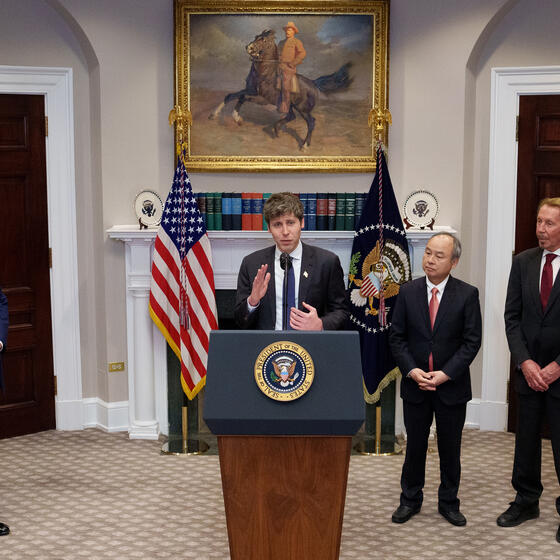Politics and Policy
What Happened When Five AI Models Fact-Checked Trump
President Donald Trump is an AI booster, write Yale SOM’s Jeffrey Sonnenfeld and co-authors Stephen Henriques and Steven Tian. So they thought it was fair to ask the leading chatbots to evaluate some of Trump’s frequently repeated claims.

Three Questions: Prof. William B. English on the Debut of the New Fed Chair
We asked Prof. William B. English, who spent more than two decades as an economist at the Fed, to interpret new Fed chair Jerome Powell's first Open Market Committee meeting.
Why Do Women Inventors Win Fewer Patents?
Women inventors are less likely to have their patent applications approved than men. But that disparity dips if an examiner can’t guess an inventor’s gender from her name.

What Will It Take to Fix Public Education?
Are we making progress toward a better and more equitable education system? Yale Insights talked with former secretary of education John King, now president and CEO of the Education Trust.

Can a ‘Veil of Ignorance’ Break India’s Election Deadlock?
Yale SOM’s Shyam Sunder writes that India may be able pass a law synchronizing its elections if it obscures the partisan consequences by enacting the change with a built-in delay.
What Will It Cost to Rebuild Canada’s Infrastructure?
Amarjeet Sohi, Canada’s first-ever minister of infrastructure and communities, discusses the country’s plan to sharply increase public and private investment in infrastructure.

Can Regulators Keep Up with Fintech?
Can the tech industry’s “move fast and break things” approach create innovation in financial services without wrecking the economy?

Three Questions: Prof. Rick Antle on Lowering Corporate Taxes
As the Republicans’ $1.5 trillion tax package trundles toward a vote in the Senate, we asked Rick Antle, an expert in financial accounting and corporate governance, on how the corporate tax system could be improved.
Social Media, the Corporation, and the State
Yale’s Shyam Sunder assesses some of the complications that arise when multinational corporations become implicated in political questions.
Three Questions: Prof. David Bach on European Separatist Movements
Yale SOM’s David Bach writes the independence movement in Catalonia reflects a widespread rejection of the political establishment.
What Has Ireland Learned from Austerity?
Ireland slashed spending and raising taxes to address a fiscal crisis during the Great Recession. What does Ireland's subsequent recovery say about the effectiveness of austerity?
